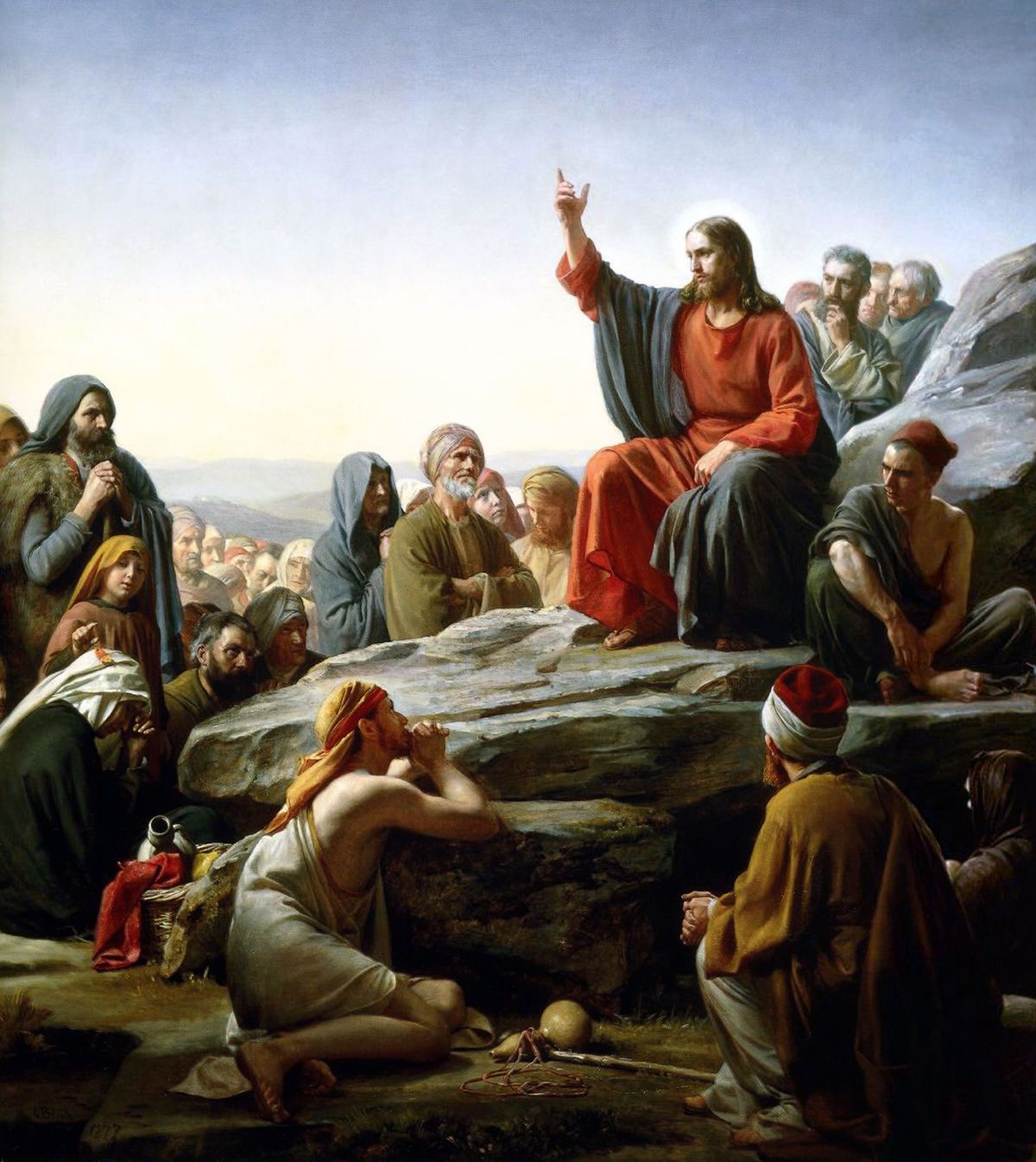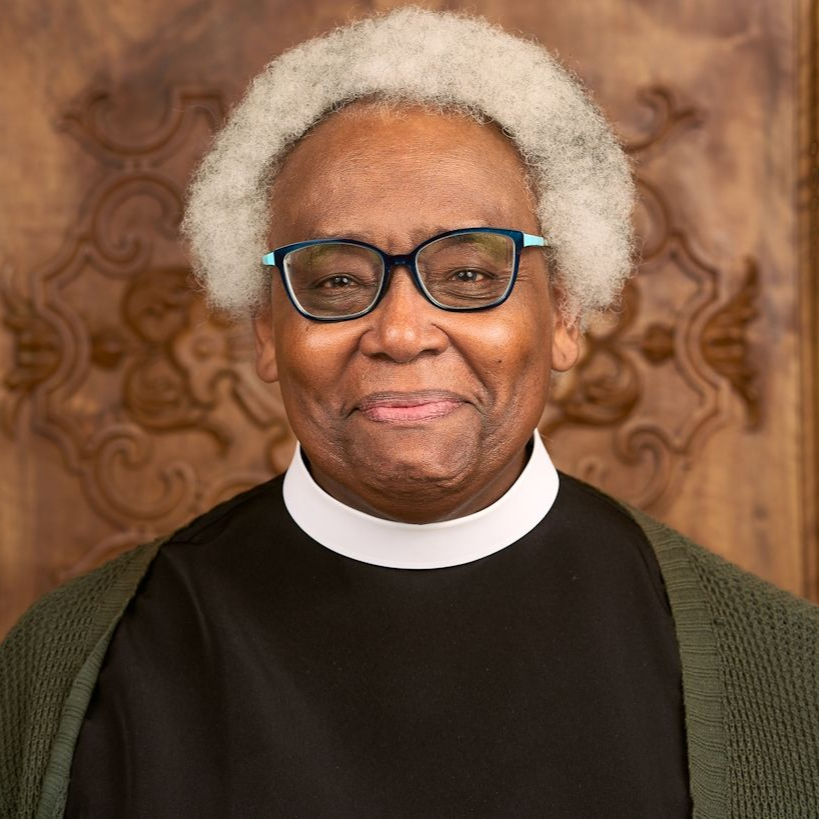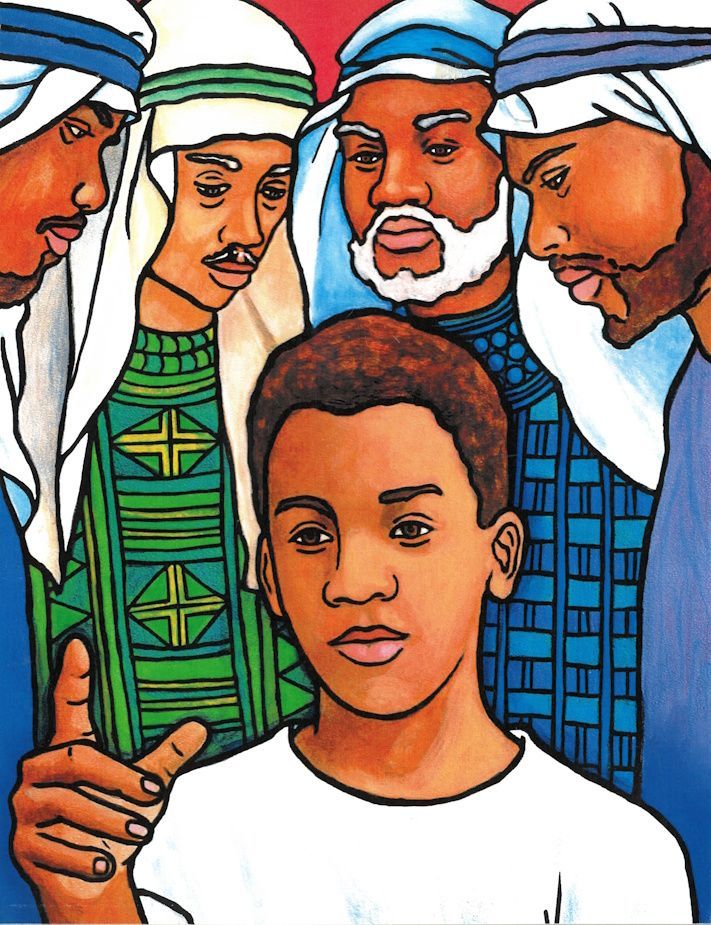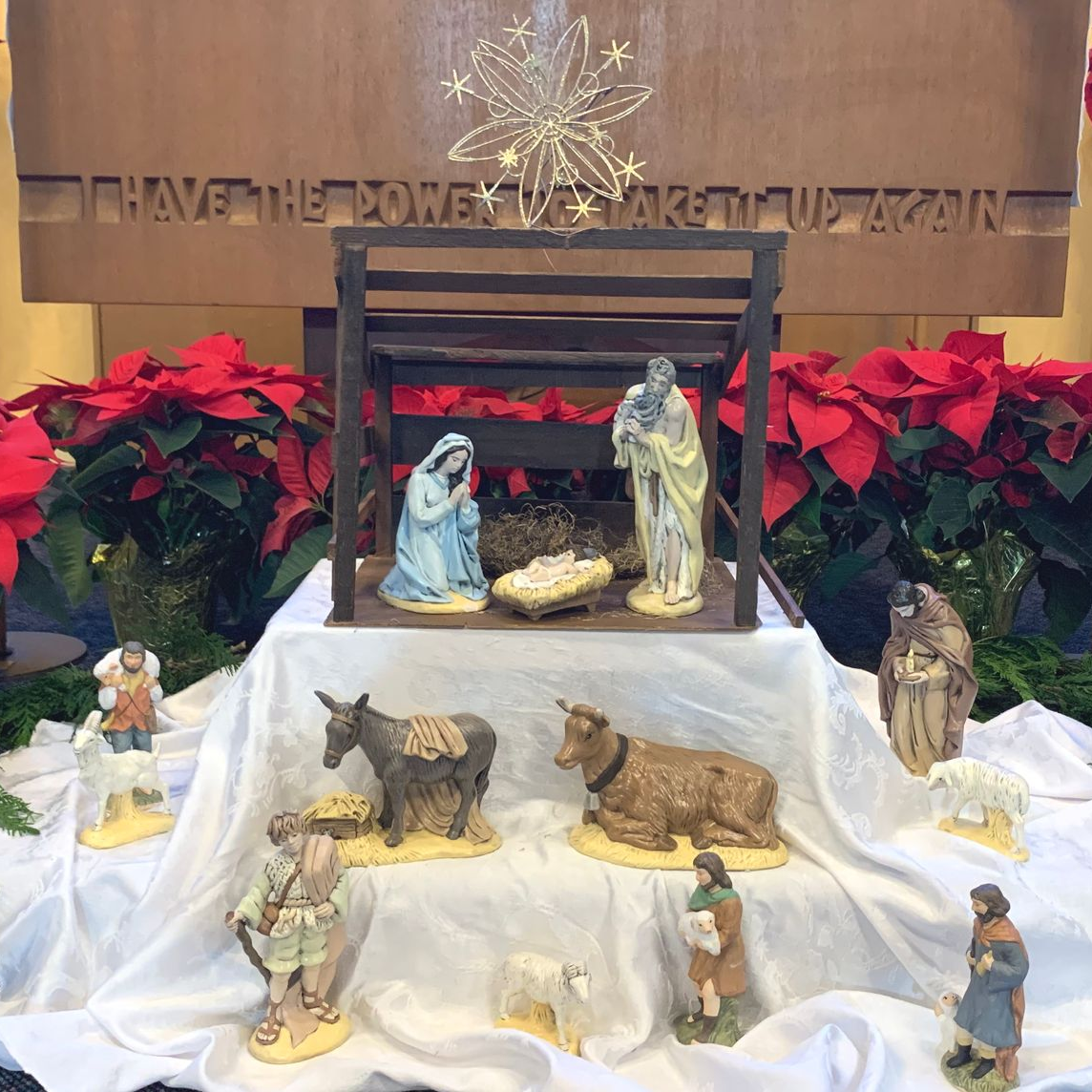The Good News Is Justice
We humans don't know how to do justice to justice.
2025-52
sermon preached at Church of the Good Shepherd, Federal Way, WA
www.goodshepherdfw.org
by the Rev. Josh Hosler, Rector
The Nineteenth Sunday after Pentecost (Proper 24C-Tr1), October 19, 2025
Jeremiah 31:27-34 ; Psalm 119:97-104 ; 2 Timothy 3:14-4:5 ; Luke 18:1-8
Last week I asked you all for some good news. Let’s do that again! Does anybody have some good news for me? […]
This is all good news. But again I’ll ask, what is The Good News? And I have another formulation of The Good News for you today: “The Good News is the justice that comes swiftly enough to be strong, but gently enough to last forever.”
We hear throughout the Bible that “the days are surely coming” when everything will be repaired … but we’re not the ones who will make the reparations.
Jeremiah prophesies that the people of Judah and Israel are still precious to God, despite both of their countries having been destroyed. The Chosen People are so precious that God promises a future in which there will be no need for a written lawbook, because everyone will love as naturally as they breathe. They will have no need to learn about God, because intimacy with God will be the water they swim in all the time.
When it comes to visions of a hopeful future, God doesn’t skimp. God doesn’t say, “I will make all things good enough for now, in the next few weeks,” no! Yet so often that’s what we wish for most—a little relief, just for now, just to get us to the next mile marker, even if someone else has to suffer to make it happen. Our imaginations can be woefully inadequate.
This week I was remembering the day Osama bin Laden was killed. It was May 2, 2011, and President Obama and his officials had dispatched Navy SEALs to surprise bin Laden at his compound in Pakistan and take him out. All over the world that day, people rejoiced. President Obama said, “To those families who have lost loved ones to al-Qaeda's terror, justice has been done.”
But the killing of Osama bin Laden was not justice. It was vengeance. There’s a big difference.
Now, you may think I’m overstating my point a bit, and maybe I am, because the definitions of concepts like “justice” are pretty squishy. To be fair, I learned in seminary about four types of justice. Distributive justice is about making sure everybody has the things they need to survive and thrive. Commutative justice is about sharing and exchanging our common resources fairly. Retributive justice is the kind Obama was talking about: why do we punish lawbreakers, and to what end? Then there’s restorative justice, which is about seeking healing, wholeness, and reconciliation for everyone in society.
I am convinced that if the word of God were truly written on our hearts, we could only see the killing of Osama bin Laden as yet another tragic casualty in the legacy of Cain and Abel. God’s concerns are far deeper and longer-term than the immediate relief that comes when a murderer is himself murdered. We humans don’t know how to do justice to justice.
God’s kind of justice is the restorative kind—the kind that puts people back into loving relationship with one other. The thing about restorative justice, though, is that it cannot be forced on anyone. People have to really want it. And maybe that’s why we don’t tend to codify it in law. Honestly, restorative justice might be most possible outside the realm of human law—in the world where God’s law is truly written on our hearts.
Maybe sometimes the best we can do in this world is to violently eliminate immediate threats to people’s lives. But I wish everybody would understand that this is not a worthy definition of justice. Restorative justice is literally the mission of the Church.
We move toward restorative justice by sharing stories with one another—stories about what Jesus calls the Kingdom of God. The author of the Second Letter to Timothy writes that the Hebrew Bible is breathed on by God—infused with inspiratory power to make it useful in the living of our lives. It’s something of a training manual for life in the Kingdom of God. It is a collection of stories, histories, fables, poetry, wisdom … all intended to keep us aware of God’s presence and action in the world.
But as you’re learning how to live in God’s Kingdom, don’t settle for teachers who promise a quick fix. To be a follower of Jesus will be both joyful and difficult, because you will have to keep growing in patience and endurance. You have to train for a marathon or a winning baseball season. You have to study for a degree. You have to practice a language or a musical instrument. Naturally, then, learning how to love the way Jesus loves also requires a lifetime of ongoing training, and that means frequently finding out we were wrong and then learning something truer.
But why do we do all this? The world is a dangerous place, and it’s full of injustice. Is God helping us or not? And so we come to the gospel.
In Jesus’ parable about the widow who just won’t stop pestering a certain lazy judge, the Greek word ἐκδικήσω implies that she is seeking retributive justice: punishment of someone who has wronged her. The language also implies that the judge is afraid of the widow physically harming him! That Greek word is ὑπωπιάζῃ, and it doesn’t mean wearing someone out. It means giving someone a black eye or even beating them up. The judge could be using it figuratively, of course … or maybe not.
At any rate, the judge does eventually hear her case and gives her the result she wants, not to give her justice, but to make her go away. A comedian once observed that when the children are fighting, the parent doesn’t want justice—only quiet! Well, if he’s such an unjust judge, how do we even know the widow was in the right? We don’t.
As I hear the parable this time around, it strikes me that it may be about our desire for God to say clearly, “I will make all things good enough for now, in the next few weeks.” The widow wants an immediate fix, and she’ll stop at nothing to get it. Now, I’m not saying we shouldn’t pursue justice doggedly. Sometimes someone needs to get arrested to stop them from hurting other people! But I’m not sure that Jesus’ parable is giving us an example of that kind of situation.
Rather, Jesus shows us the stance we need to take in relation to God. We are to approach God like people starving for justice and not let go until real, restorative justice arrives. Jesus asks, “Will not God grant justice to his chosen ones who cry to him day and night? Will he delay long in helping them? I tell you, he will quickly grant justice to them.” Well, Jesus, where’s the justice? What’s taking you so long? You told this story 2000 years ago!
At that time, Jesus’ followers certainly wondered: What would justice look like for the Jews living under occupation? Would it look like a violent uprising that would send the legions of soldiers fleeing back to Rome?
For us today, we may well wonder … what could justice look like in Gaza? Total submission of the Palestinians to apartheid status? Nope, not good enough. More violence? I think you can count on that. If you’re at a total loss on how anything in the Holy Land gets resolved … well, so am I.
And maybe that’s Jesus’ point. There’s still no quick fix for this. What if God is also starving for justice? What if God is impatient for our pain to end? For those who suffer to find relief? But what if God needs to guide this process slowly and gently so as not to lose anybody along the way? What if true, divine justice just takes this long? Because nobody is a lost cause. God will not throw anyone under the bus. God will not settle for “collateral damage”—not when it comes to the eternal nature of people’s souls.
“The Good News is the justice that comes swiftly enough to be strong, but gently enough to last forever.”
And that’s why Luke advises us to persevere in prayer and not to lose heart. We’re not pestering an uncaring judge who flings down pronouncements and condemnations from on high … as much as we might wish God would do this to other people! No we’re encountering the one who loves us all more deeply than we could ever love ourselves—but who needs us to figure this out in our own way.
God loves the pastor who was pepper-balled, and God loves the ICE agent who pepper-balled him. What does justice look like for each of them?
God loves Charlie Kirk, and God loves the young man who killed him. What does justice look like for each of them?
God loves the queer kid just trying to survive high school, and God loves the bully who just beat them up. What does justice look like for each of them?
God loves the elderly widow whose health care costs have forced her out of her home, and God loves the insurance CEO whose top priority is to buy a personal ski lodge in Vale. What does justice look like for each of them?
Does it mean making some people suffer, simply because they deserve it? Is retributive justice good enough for God?
Well, we know that there is still good news in this world. Sometimes justice does happen in ways that are helpful to everybody concerned. Every occasion of justice is an opportunity to notice situations of injustice … and to engage the powers-that-be with strong, patient love.
Here, then, is the Church of the Good Shepherd, a training ground for a life of faith. And if you’re going to train, you’ll need to stay hungry! Every week we lay a feast here and invite you to share in it. The church is here to help you encounter the justice of Jesus in as many ways as possible.
So if you’re starving for justice today, know this: God is in your hunger. God is in your impatience. God is not ignoring you, and God is not punishing you. God is inviting you to grow, to be good and just in all the ways you engage with the world. And the most effective justice usually takes a long time, because every human being matters to God. That includes you.
OK, a little more good news? Let’s be thankful together! […]











